After God dies, what is left to do? Friedrich Nietzsche thought that a period of chaos would ensue: Christianity's monopoly on morality would crumble, and people would drift into a directionless nihilism. But he knew this was only a transitional phase, not the endpoint. All good economists understand that when a monopoly providing a basic, highly demanded good dies, the market reacts predictably. Similarly, all good evolutionary biologists understand that when an extinction-level event wipes out Earth's megafauna—such as in the case of the Cretaceous extinction—the once-underfoot mammals respond to the new power vacuum. Nietzsche foresaw that once-underfoot religions, social movements, and philosophies, like outcompeted firms and suppressed Mesozoic rats, would now be free to adaptively radiate into new niches or compete in the marketplace of ideas, allowing "buyers" to choose their values. More accurately, a select few—the Übermensch—would reject their culture's externally imposed values and invent new ones which, if seductive enough, would become the new morality.
This is where the will to power comes in. The Übermensch (Overman) embodies the highest expression of the will to power. The Overman is creative—not in the debased sense that educational instructors and pop psychologists have popularized, but in the serious, true sense of the word. Think of 5th to 4th century BC Athens, the Harlem Renaissance, and the Manhattan Project. It is in this historical spirit that the Overman invents new and better values than those that came before, and in doing so, exercises his will to power. Above all, the Overman manifests his will to power to the fullest extent, making himself self-important in the best sense of the term. Unfortunately, our society has sunk so deeply into slave morality that this term is rarely understood in such a positive light. But wait a minute—what exactly is the will to power?
“What is good? - all that heightens the feeling of
power, the will to power, power itself in man.
What is bad? - all that proceeds from weakness.
What is happiness? - the feeling that power
increases- that a resistance is overcome.”
Will to power is choice. Those familiar with John Steinbeck’s East of Eden will remember the Hebrew word Timshel—by far the single most important word in the Bible for Steinbeck. It translates to "thou mayest," serving as a reminder to Cain, fresh off killing his brother Abel, that we have the power to choose and no one to blame but ourselves if we succeed or fail. If anything can be said about Nietzsche, it is that he was extremely anti-Christian, but on this point, his philosophy and Christianity are remarkably symmetrical.
So, getting to the point, Nietzsche’s will to power is life itself. Nature is will to power on full display. The apple you eat represents a battle between your stomach and the apple’s flesh—if you win, you absorb its energy. The same principle applies to carnivores and herbivores, profitable and unprofitable firms, advanced and complacent militaries, and so on. There are elements of Social Darwinism, creative destruction, we could talk about the will to power for dozens more pages. But we have a disagreement boiling up to the surface. Can you sense it?
What is J.R.R. Tolkien’s philosophy of power? Well, it’s complicated, but we can say for sure that it is entirely opposed to Nietzsche’s. Lord Acton’s famous quote offers a good approximation: “Power tends to corrupt, and absolute power corrupts absolutely.” Tolkien’s metaphor of the One Ring captures this idea vividly. Those who can resist its allure, such as Sam, are prized above characters like Boromir, who try to exert their will to power. Nietzsche, however, might counter with a different claim: weakness tends to corrupt, and absolute weakness corrupts absolutely. He might even argue that Sam is exerting his will to power when he rebukes the influence of the Ring.
Nietzsche believed that everyone possesses a desire to express themselves, which they achieve by acquiring power. This manifests in two ways: acquiring power over yourself (as Sam demonstrates) and acquiring power over others. The first allows us to overcome moral nihilism by gaining mastery over ourselves and crafting a new purpose. Tolkien and Nietzsche agree, however, that failing to fulfill the first requirement leads to this position:
But what about the second requirement—having power over others? Well, here’s the rub: Tolkien sees the manifestation of this as becoming the Overman, embodied in Sauron.
So, you can read Sauron as a Nietzschean Übermensch. He rejects the gods of Middle-earth, the traditional moral system, and unabashedly exerts his will over others. In letter 131, Tolkien writes that "the Ring symbolizes the mere will to power, seeking to make itself objective by physical force and mechanism." Here, Nietzsche and Tolkien diverge: Tolkien wants modernists to return to the Christian fold, while Nietzsche sees this as impossible. Nietzsche moves forward by advocating the creation of new values, whereas Tolkien looks backward, crafting The Lord of the Rings as a cautionary tale about the consequences of post-Christian nihilism. In a way, Tolkien is answering Nietzsche, illustrating that attempts to create new value systems result in moral and existential ruin. Implicit in Tolkien’s work is the idea that traditional Christian values—humility, love, and mercy—are irreplaceable.
Tolkien likely viewed Nietzsche's solution, particularly the second requirement of the will to power, as leading to a world where might makes right. This opposition becomes clear when examining Tolkien’s characters. Bilbo spares Gollum’s life in The Hobbit, and though Frodo initially resents this act of mercy, it ultimately leads to the Ring's destruction. Similarly, Bilbo’s sacrifice in giving up the Ring, the equality within the Fellowship, and Gandalf's self-sacrifice all reflect values counter to Nietzsche’s philosophy. The Fellowship never fully pursues their will to power, and it is precisely because of this that they triumph over those who do—Boromir, Sauron, and Saruman.
So this all seems pretty sensible and aligns with conventional morality in the West, at least in this decade. But how might Nietzsche reply, fresh off reading The Lord of the Rings? He might say something like this:
The will to power is a concept designed to help us understand our purpose in a post-religious society. It doesn’t necessitate cruelty. You can exert your influence over others through gestures of friendship and camaraderie. You can become the Overman by creating great works of art, forging new values, exploring uncharted territories, or helping others. The will to power frees you from the shackles of Tolkien’s Catholicism, Japan’s rigid social conformity, or the prevailing trends in art and architecture of your time. Wherever you are, others are exerting their will to power over you, trying to make you conform to one norm or another. Nietzsche simply reveals their hand.
You can play the same game. You can realize yourself by exerting your will to power and rejecting theirs. In other words, the Overman is anti-status quo bias personified.
And nowhere does Nietzsche say that this exertion must be done in a cruel, tyrannical manner. In this way, Sauron is not a Nietzschean Overman but rather a straw man of what Tolkien thinks a Nietzschean Overman to be.
Nietzsche is not idealistic; he understands that people may harm others, not out of pure malevolence—which is rare—but to feel power over another. Siblings and those with kids know how often this can happen. But a brother who bullies his younger sibling to feel powerful is not a Nietzschean Overman. He does this because he wants power, and to want is to lack. Lacking power, he commits evil deeds. This aspect of the brother is impotent, ineffectual, weak. That is precisely why he acts as he does.
This desire to see others suffer as a result of one's actions is a sign of insecurity. A person who is secure in himself, who has power over himself, does not need to create suffering. The bullying brother depends on the younger sibling for his sense of power. A true Overman, on the other hand, has a drive toward self-actualization that is independent of others.
Harkening back to Cain and Abel, one might see Cain as akin to Sauron—a straw man Overman. Cain is motivated by revenge and resentment, causing suffering to Abel. Nietzsche sees resentment-based morality as fundamentally outwardly directed: it defines itself through opposition to an outgroup, to a perceived threat. This is slave morality. In contrast, master morality—and the morality of the Overman—is inwardly motivated. It draws power from within and does not rely on others (or God) for approval. Thus, it is not driven to acts like killing one’s brother out of rejection or envy.
For those unaware, the basic difference between master and slave morality lies in both personal and civilizational ethics. In both individuals and societies, you will find a mix of the two. Cain is a particularly good example of slave morality. Slave morality is born out of resentment toward those who are better or more successful. When this unconfident and weak class of beings (which exists in every society) begins to philosophize, they elevate values like humility, pity, equity, and blame those who have succeeded for their own failures in life. In general, slave morality is defined by its tendency to say "no" to everything outside itself.
Master morality, by contrast, triumphantly says "yes." The noble or master class values strength, confidence, ingenuity, creativity, pride, and success. This is the philosophy of Rome, while slave morality aligns more closely with the philosophy of Christianity and the "oppressed." Master morality came first, and slave morality arose—and continues to exist—as a reaction to it. Slave morality requires an opposing force, such as Cain, to give it something to resist and to inspire its values.
Those secure in themselves, the truly "great" men, have no need for enemies to fuel their actions.
Allow me a brief segue into the world of 2024. New Year’s is tomorrow, and this past week, Donald Trump’s fragile coalition between the tech-right and the populist right has suffered its first significant fracture. At the heart of the dispute is a philosophical divide: the tech-right is Nietzschean, while the populists are not. The tech-right advocates for high-skilled immigration, valuing intelligence and success, and seeks to make the country more prosperous by attracting top talent from places like India. The populists, in contrast, reveal their true nature through their opposition.
One can easily critique the "woke mob" because their insecurity is plain to see. They embody slave morality to its core, valorizing victimhood, weakness, and resentment as moral virtues. Woke ideology champions the oppressed while framing traditional power or excellence as inherently corrupt. Most adherents to this ideology are insecure, afraid of change, and, as a result, are almost always anti-risk, anti-economic growth, and deeply pessimistic.
But this is my point: people often associate Nietzsche with the right for some reason, yet his philosophy doesn't align with it at all. Many mistakenly think Nietzsche was a proto-Nazi, even though he vehemently opposed anti-Semitism during his life. People think the modern right wing are Nietzschean, but when right wing populists fight against high-skilled immigration, it is motivated purely by resentment. They start sounding exactly like the far left.
You hear the same rhetoric: claims that Indians are "scheming" or working together to suppress white wages. When white people fail, it’s because Indians are supposedly conspiring against them. This fear stems from an acknowledgment that high-skilled Indians might outperform them and take their jobs, and so they turn to the government to "help" them.
While conservatives might posture as Nietzschean—embracing strength, individualism, and overcoming adversity—movements like MAGA are fundamentally the opposite. MAGA reflects a frightened, weak worldview, full of excuses for failure and bitterness. As slave moralists, they instinctively find an outgroup to blame. It might be Mexicans, Jews, urban elites, or now Indians, but the pattern is always the same.
Much of the Left and Right are driven by resentment. While this resentment can take racial forms, it often manifests in other ways as well. However, this recent episode on right-wing social media should serve as a clear revelation for those still unsure: much of the right-wing is simply cosplaying as Nietzschean. They are far from embodying the Overman—they are, in fact, sorry excuses for one.
So, looping back to the essay, where are we on the debate? It seems Tolkien has misconstrued Nietzsche’s views. Sauron, after all, is not so much an Overman as a Cain-like figure. Motivated by resentment against the gods and peoples of Middle-earth, his desire to impose uniformity rather than create anew is incompatible with master morality. On the deepest level, Sauron has more in common with the fearful environmentalist degrowther than with the Nietzschean Overman. Sauron is, at heart, a regulator, not an entrepreneur. Above all, Sauron continues to lose—over, and over, and over again. This perpetual failure feeds his resentment and pushes him even farther away from embodying the concept of the Overman.
So, what’s left to do after God dies? Nietzsche’s answer is clear: reject the mob. The woke masses, championing victimhood, and the populist right, clinging to fake enemies as excuses for their failures, are both driven by reactions. Both ought to be ignored. The Overman doesn’t cry out against this or that outgroup. He invents. He beautifies his life. He chooses for himself. Timshel.
Nietzsche challenges you: following this or that herd’s ideology is the easy way out. Instead: invent your own values.



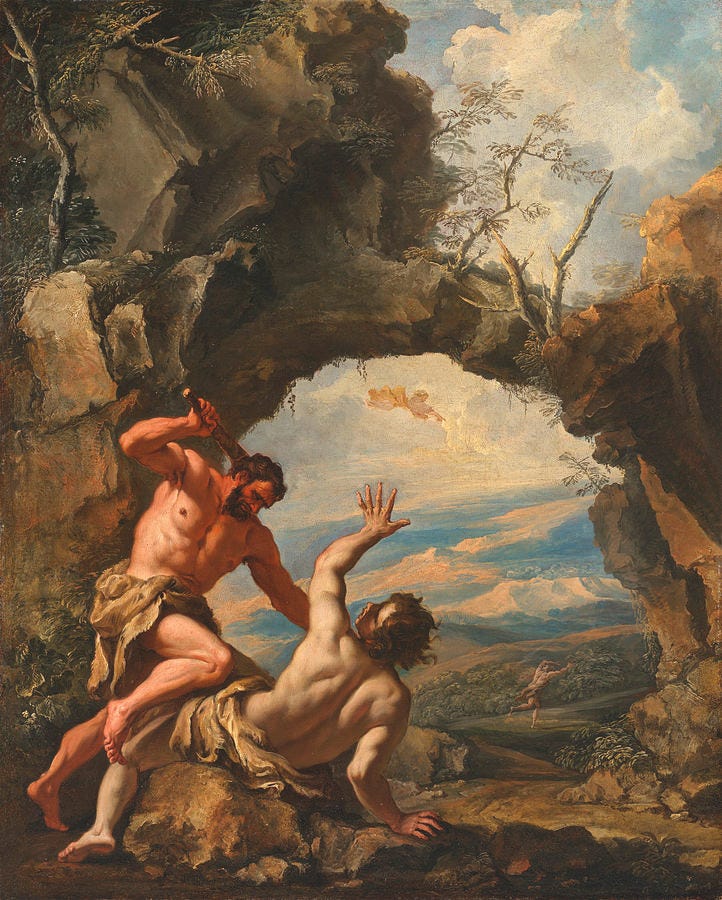
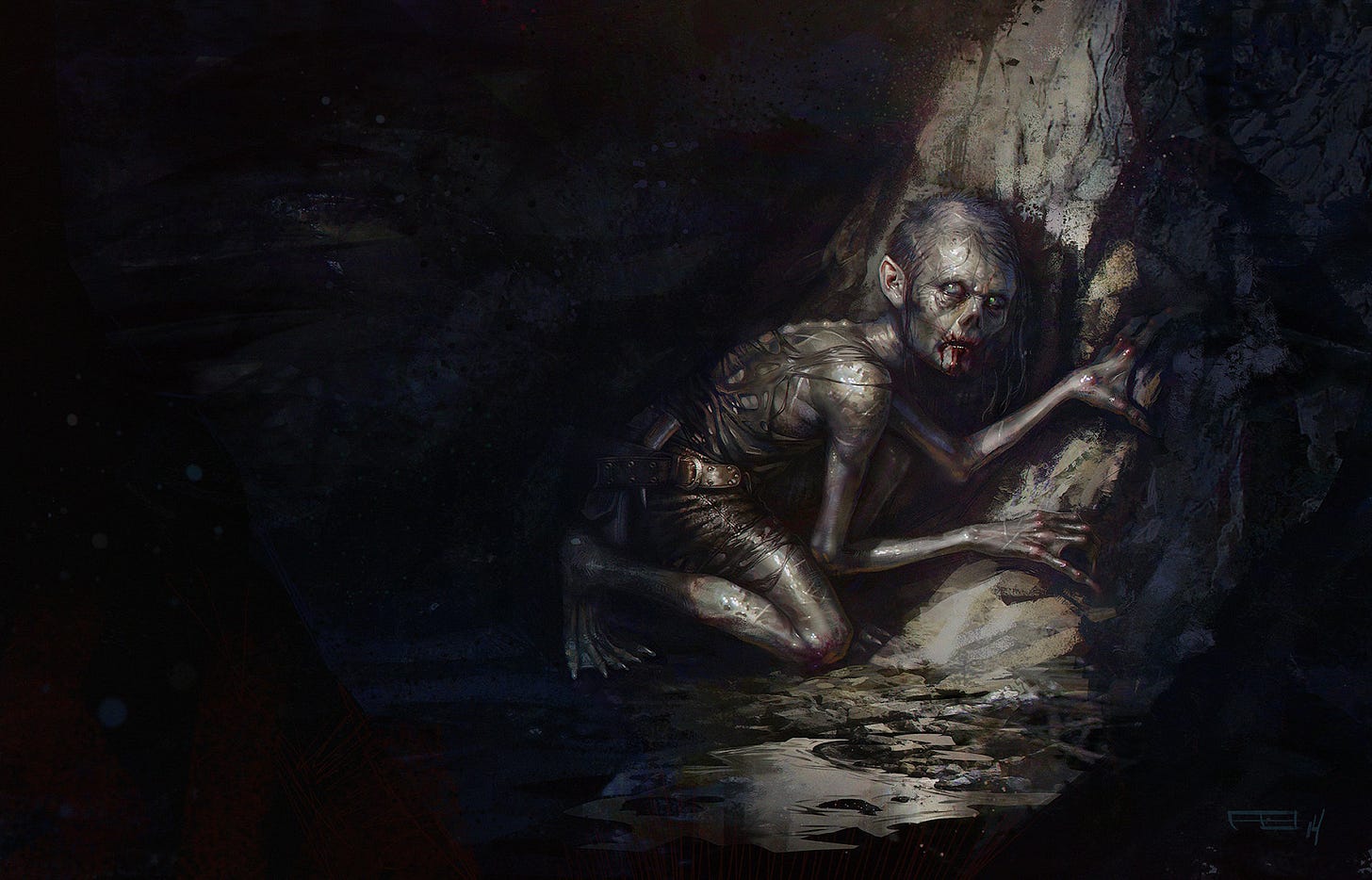
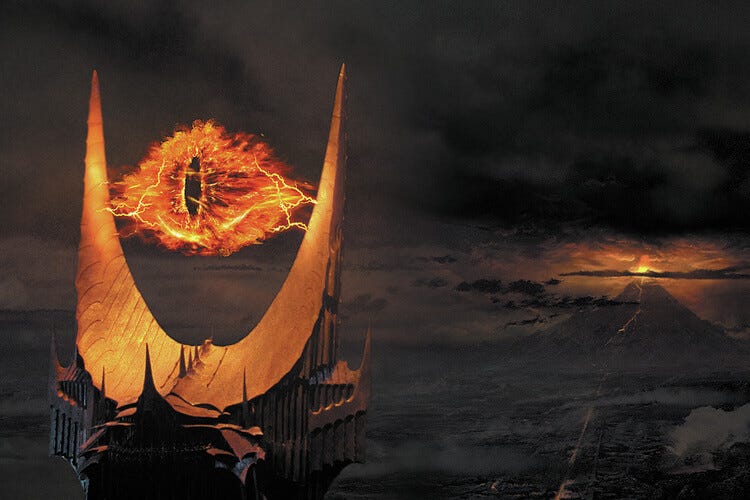
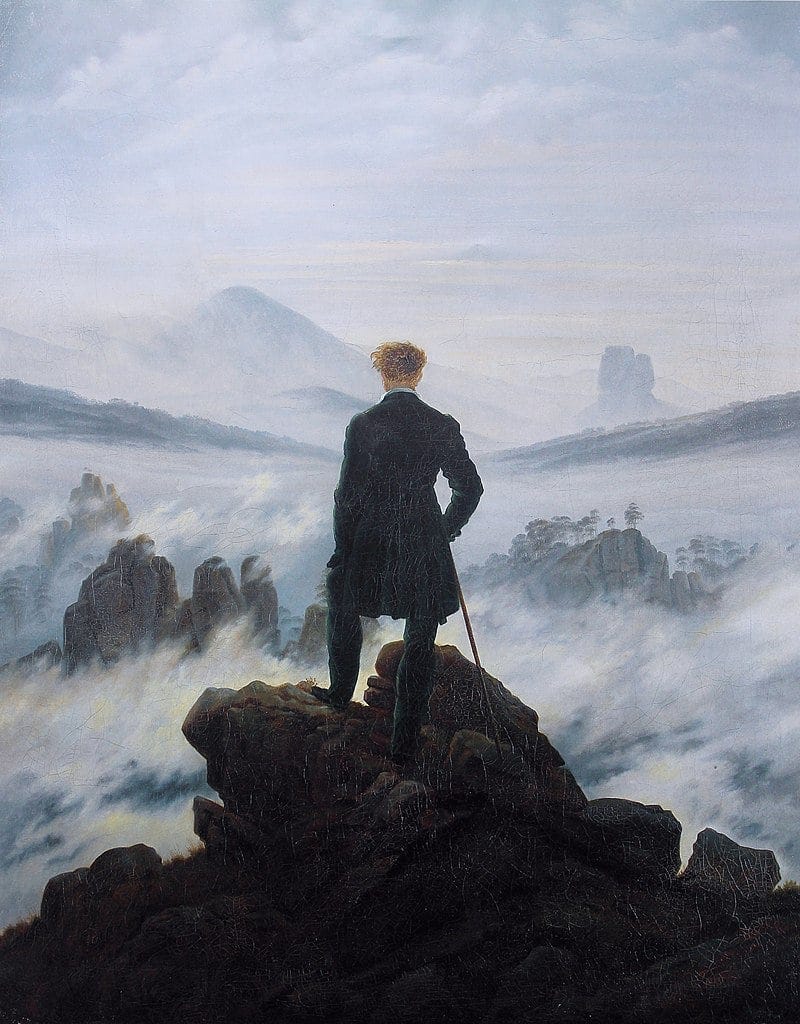

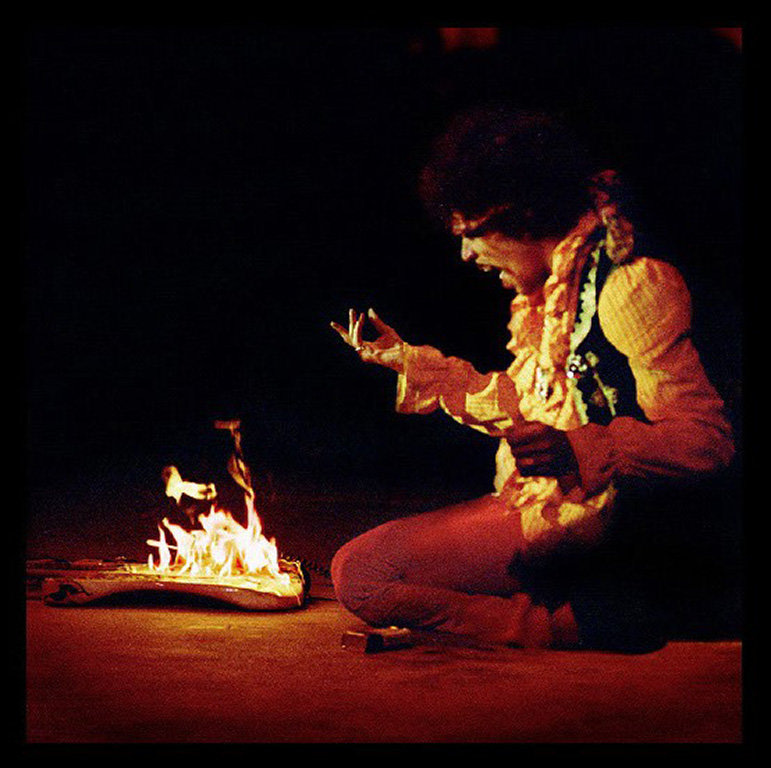
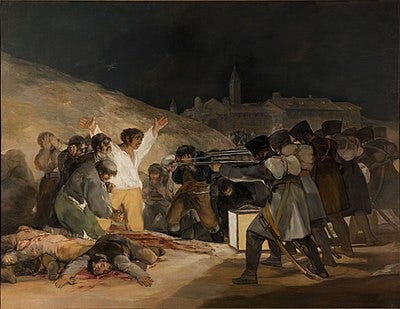
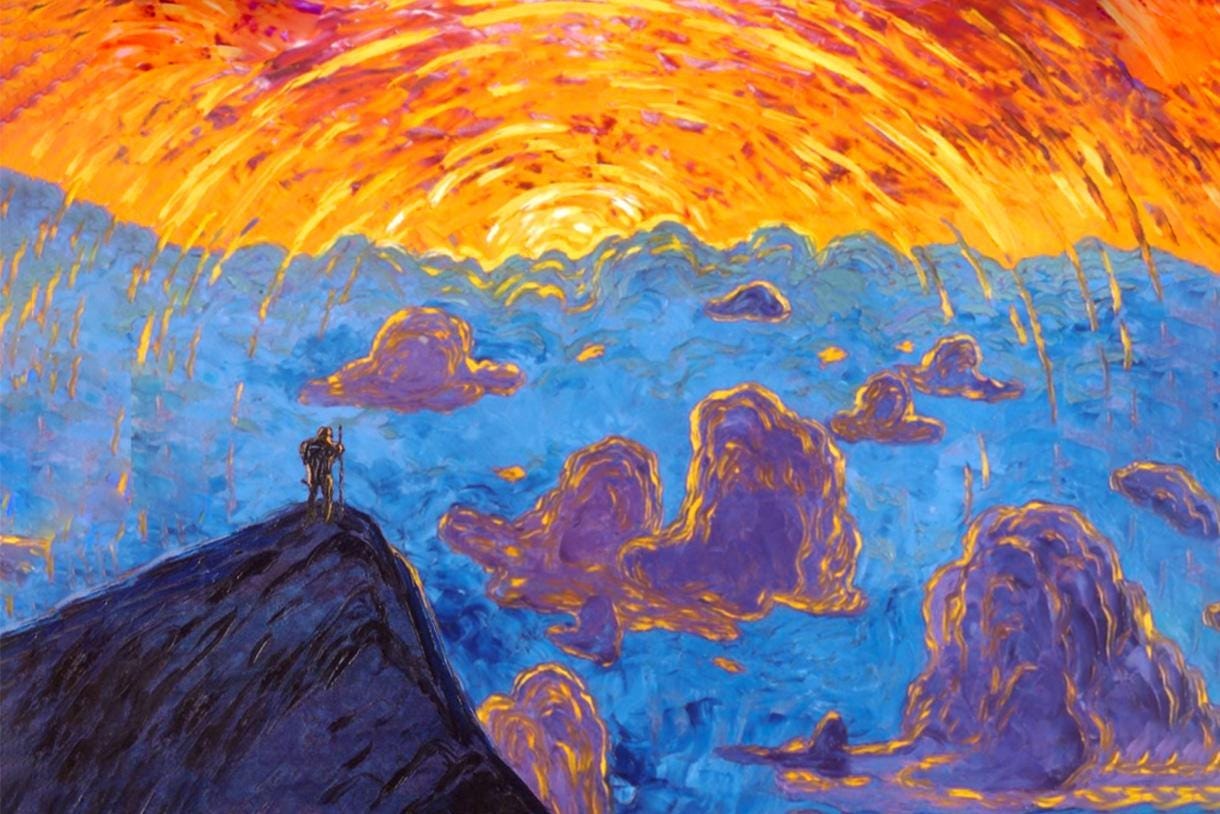
How would Foucault critique a debate between Nietzsche and Tolkien? Obviously the former died before the movies came out and it became necessary for every thinking person to have a take on Tolkien.